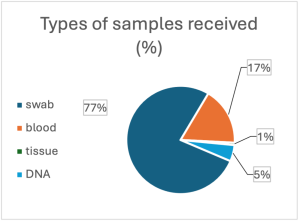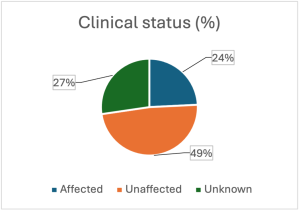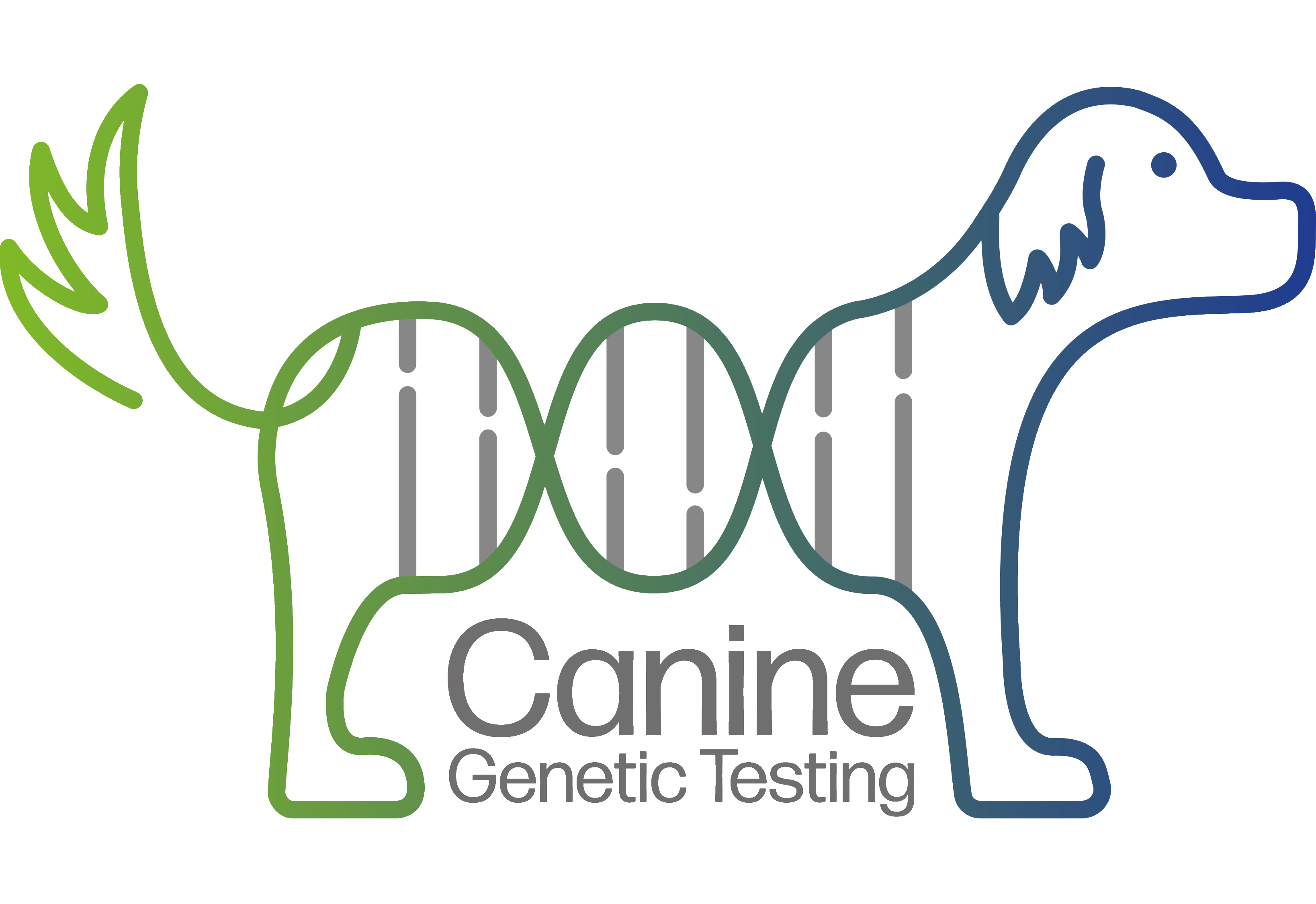 The CGC’s research database currently consists of 41,717 samples from 215 dog breeds collected since the early 1990s for the purpose of tackling inherited canine diseases. Roughly three quarters of sample contributions have come from UK-based donors, and the remaining quarter from 46 countries around the world. Alongside the data generated by the group over the years, our sample collection is a key resource that enables researchers to determine genetic variants responsible for heritable diseases in dogs.
The CGC’s research database currently consists of 41,717 samples from 215 dog breeds collected since the early 1990s for the purpose of tackling inherited canine diseases. Roughly three quarters of sample contributions have come from UK-based donors, and the remaining quarter from 46 countries around the world. Alongside the data generated by the group over the years, our sample collection is a key resource that enables researchers to determine genetic variants responsible for heritable diseases in dogs.
With a background in biochemistry, Bryan McLaughlin joined the CGC research team in 2006 and has overseen almost 35,000 sample database entries, maintaining their storage and processing over the past 18 years. “Liaising with owners, breeders, the clubs and health coordinators, primary care and referral veterinary practices has been essential to obtain the most accurate details for sample entries. As an animal lover and owner of a 10-year-old Cocker Spaniel boy, it’s been my pleasure over the years to make hundreds of acquaintances from all walks of life who ultimately share the common goal of improving canine health.”
 Samples are provided in various forms, mainly swabs containing buccal cells taken from the inside a dog’s cheek, but also whole blood, many different tissue types, and DNA from other research groups. Clinical detail to accompany samples is important to make best use of the DNA in research studies, and owners are encouraged to inform us of any significant changes in the health status of their dog(s) once on our database.
Samples are provided in various forms, mainly swabs containing buccal cells taken from the inside a dog’s cheek, but also whole blood, many different tissue types, and DNA from other research groups. Clinical detail to accompany samples is important to make best use of the DNA in research studies, and owners are encouraged to inform us of any significant changes in the health status of their dog(s) once on our database.
 Studies require samples from clinically affected and unaffected control dogs, ideally with confirmation of diagnosis/clearance from a veterinary surgeon. However, many breeders choose to archive the DNA of a litter before the pups go off to their new homes, and although very little is known about these dogs when samples are received, their DNA is a potential future resource for research.
Studies require samples from clinically affected and unaffected control dogs, ideally with confirmation of diagnosis/clearance from a veterinary surgeon. However, many breeders choose to archive the DNA of a litter before the pups go off to their new homes, and although very little is known about these dogs when samples are received, their DNA is a potential future resource for research.
If you want to send us a sample from your affected dog, or to archive your dog’s DNA for our future research, please complete our online form to request a swab kit.



Comments are closed